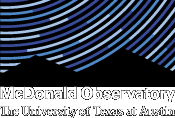AAS Names Steven Finkelstein as Fred Kavli Plenary Lecturer for 246th Meeting
With support from the Kavli Foundation, the Vice Presidents of the American Astronomical Society (AAS) name a special invited lecturer to kick off each semiannual AAS meeting with a presentation on recent research of great importance. At the 246th AAS meeting in Anchorage, Alaska, on 9 June 2025, the Fred Kavli Plenary Lecture will be given by Dr.

